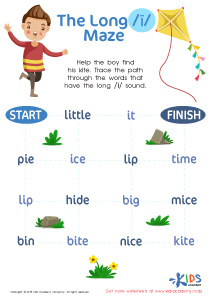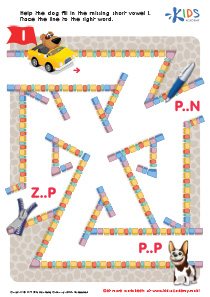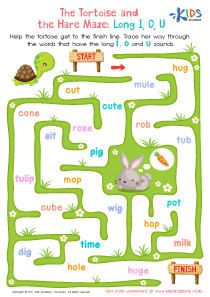Extra Challenge Missing Vowels Worksheets for Ages 4-6
4 filtered results
-
From - To
Introducing our Extra Challenge Missing Vowels worksheets, designed specifically for curious minds aged 4-6. Engage your child with this unique set of activities that blend fun with education, challenging them to solve puzzles by filling in the missing vowels. These worksheets are not only a fantastic tool for reinforcing vowel recognition but also enhance spelling skills and boost confidence in early reading stages. Perfect for both classroom and at-home learning, our Extra Challenge Missing Vowels collection promises to keep your young learner entertained while effectively building foundational literacy skills. Dive into this exciting journey of exploration and discovery with your child today!
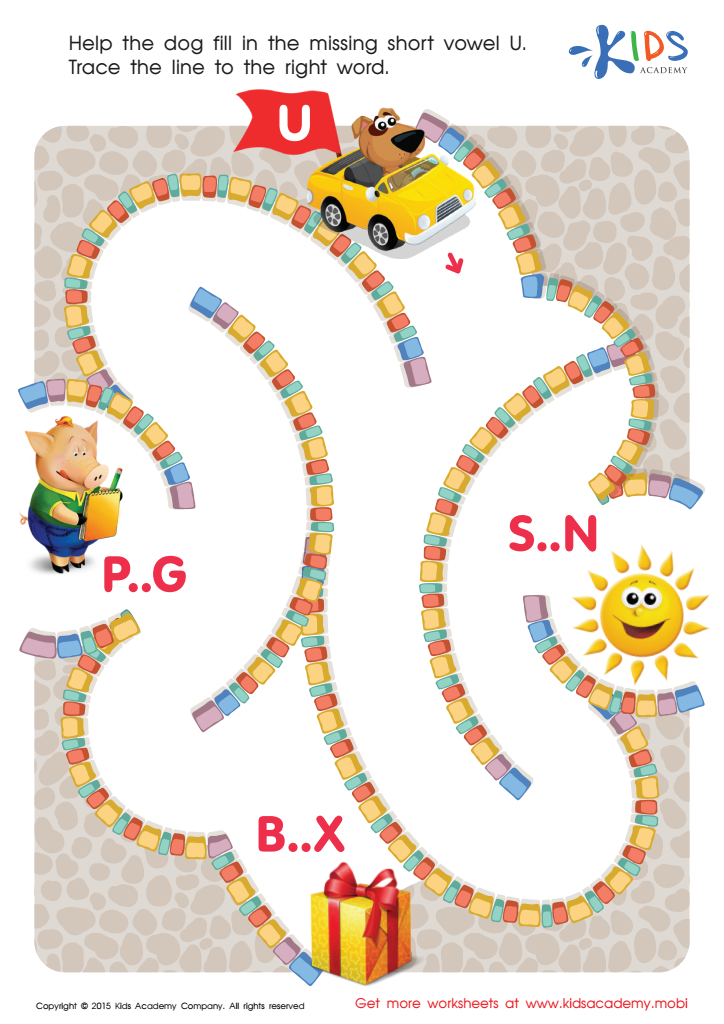

Short Vowel Sound U Worksheet
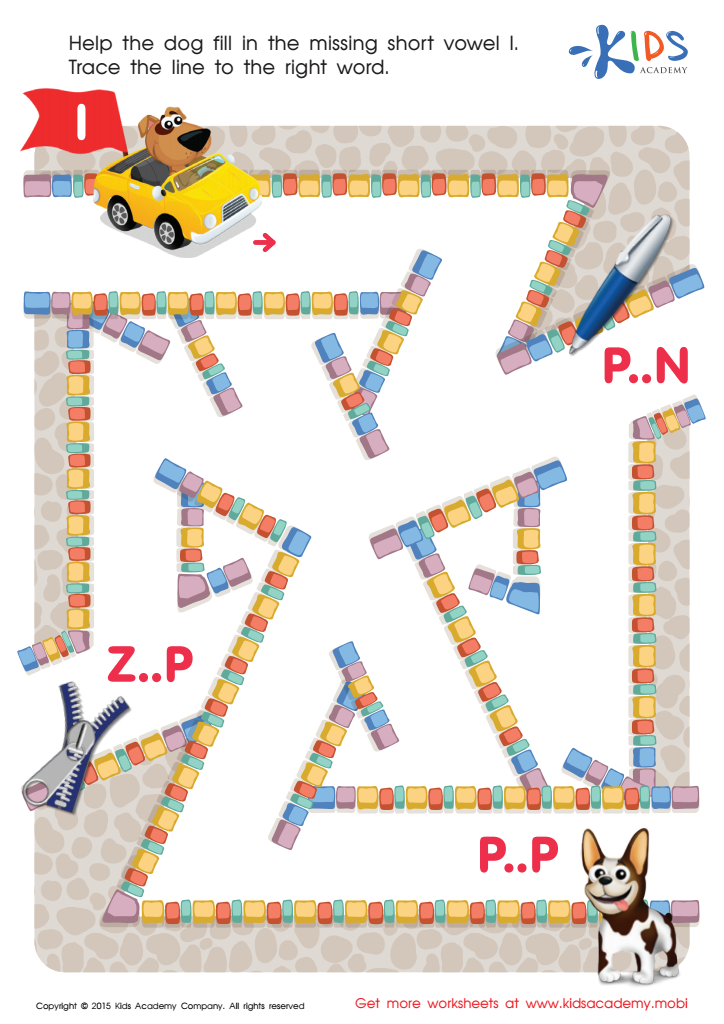

Short Vowel Sound I Worksheet
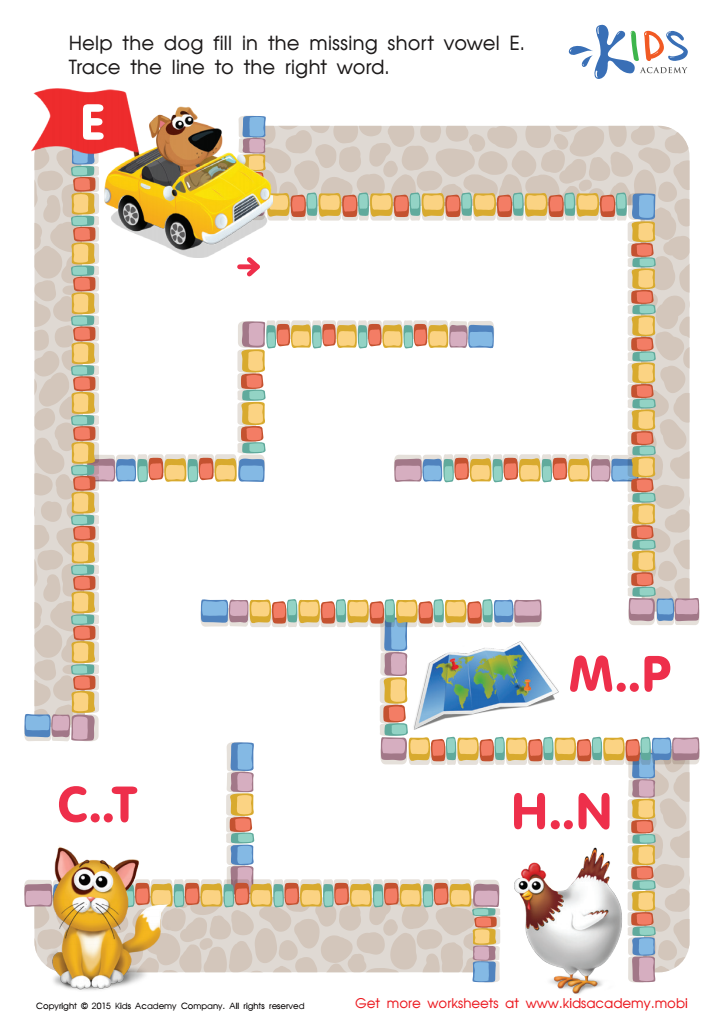

Short Vowel Sound E Worksheet
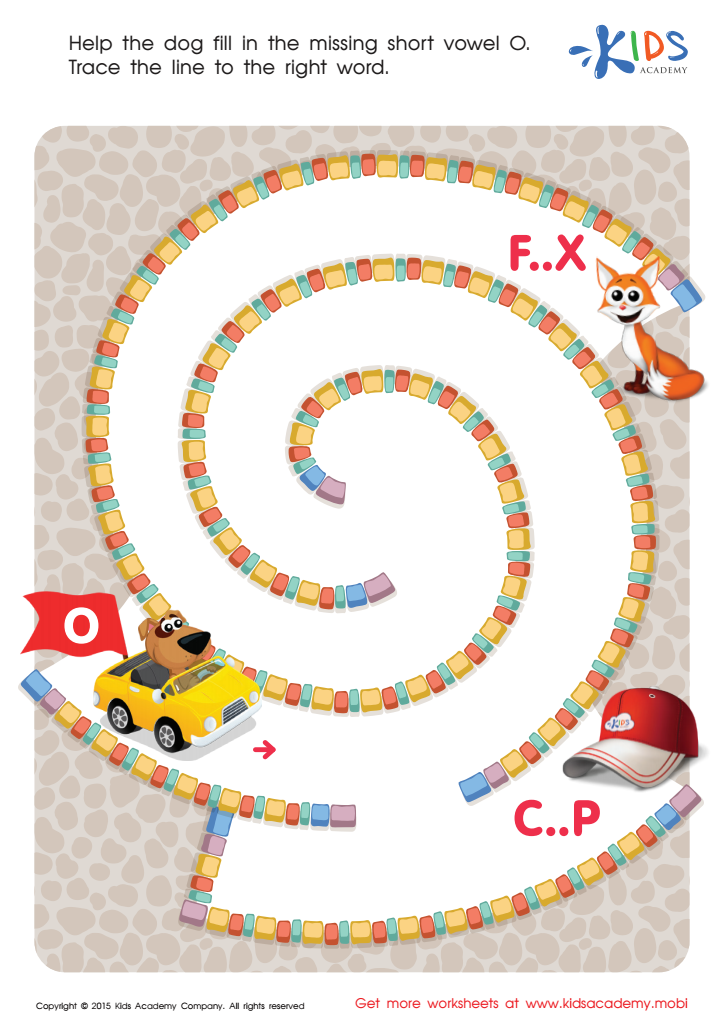

Short Vowel Sound O Worksheet
Extra Challenge Missing Vowels worksheets are specifically designed for children aged 4 to 6, serving as a foundational tool in their early learning journey. These worksheets ingeniously blend fun with education, making the process of learning vowels not just engaging but also highly effective. The concept behind Extra Challenge Missing Vowels for Ages 4-6 is to encourage young learners to identify and fill in missing vowels in words, a crucial step in their literacy development.
One of the key benefits of these worksheets is their ability to enhance phonemic awareness. At this tender age, children are just beginning to understand the sounds that make up words. By engaging with missing vowels activities, they start recognizing vowel sounds and their importance in word formation, which is fundamental for reading and spelling.
Moreover, these worksheets are crafted to provide an extra challenge beyond the basic recognition of letters. They push young minds to think critically, developing problem-solving skills as they figure out which vowel fits in each blank. This not only reinforces their knowledge of vowels but also boosts their confidence as they successfully complete each worksheet.
Extra Challenge Missing Vowels for Ages 4-6 also fosters a love for learning. By presenting vowel practice in a fun and interactive manner, children become more enthusiastic about their educational journey, setting a positive trajectory for lifelong learning.
 Assign to My Students
Assign to My Students





